| | Trump arrives in the UK to pomp, ceremony, and protests; Anthropic risks a row with the White House;͏ ͏ ͏ ͏ ͏ ͏ |
| |  | Flagship |  |
| |
|
The World Today | 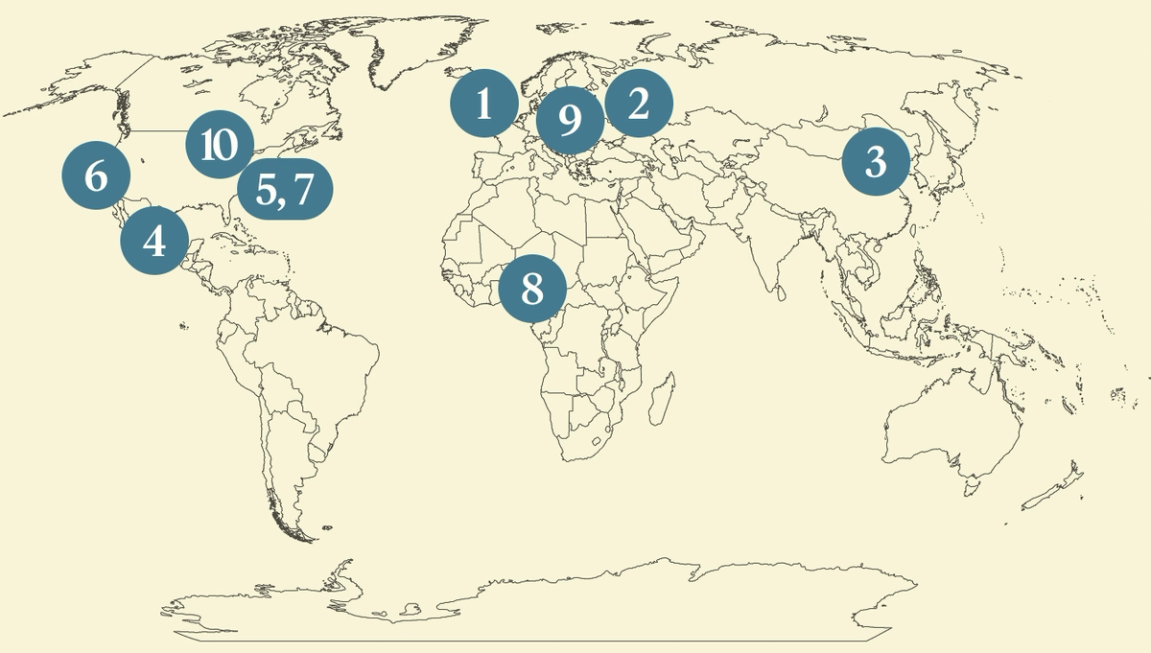 - UK Trump protests
- Russia tests NATO resolve
- ‘Hawkish’ US China diplo
- US, Mexico, Canada trade
- US foreign policy at risk
- Anthropic-White House row
- Fed rate cut expected
- Nigeria’s new refinery
- GLP-1 drugs’ effects
- Great Lakes wreck find
 The world’s oldest mummies, and the return of a Canadian singer-songwriter who gets better with age. |
|
Trump UK visit sees ceremony and protest |
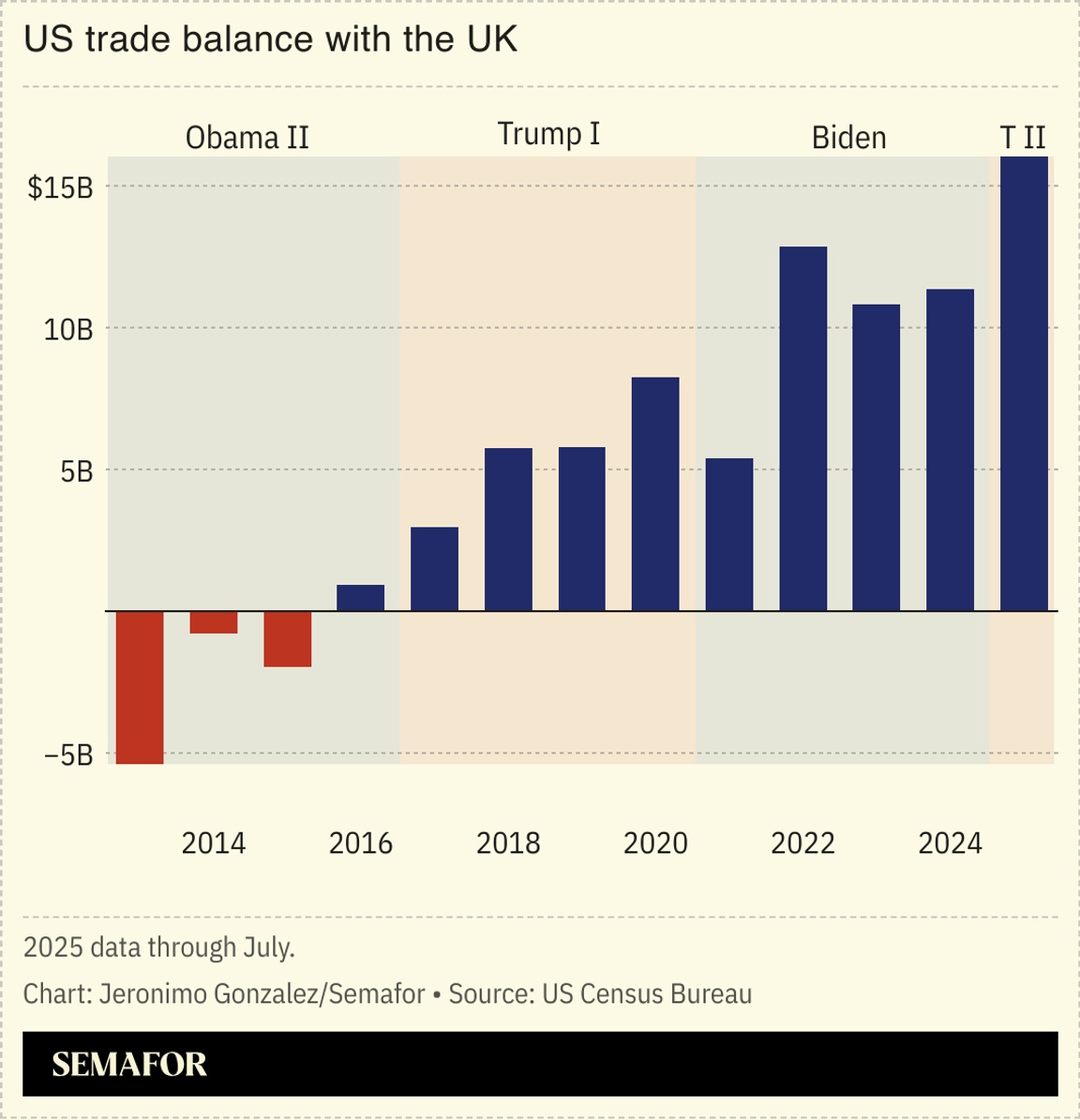 US President Donald Trump’s UK state visit is being characterized by lavish ceremony, promises of mutual investment, and — just off stage — roiling protests from a British public with whom he is deeply unpopular. Trump will attend a state banquet tonight, accompanied by top UK and US executives, many of whom are pledging to spend huge sums in each other’s countries. The visit brings benefits and risks for Prime Minister Keir Starmer; it is delivering an influx of cash and a political distraction, but will force him to stand alongside Trump while the president is asked about his relationship with disgraced financier Jeffrey Epstein. Protesters already laid a huge image of Trump and Epstein outside the president’s quarters in Windsor Castle. |
|
Russia tests NATO’s resolve |
 Sputnik/Mikhail Metzel/Pool via Reuters Sputnik/Mikhail Metzel/Pool via ReutersRussia and Belarus stirred unease across Europe with military drills that included rehearsals involving the launching of tactical nuclear weapons. Western powers fear the Kremlin is increasingly testing NATO defenses, particularly with a series of recent drone incursions that prompted Poland to call for the military alliance to enforce a no-fly zone over Ukraine. That the exercises are dubbed “Zapad 2025,” or “West 2025,” has not helped matters. Moscow and Minsk insist the exercises are purely defensive and, in what they said was a show of openness, invited Western military officials and journalists to watch. Not everyone is convinced: “I remember hearing similar claims three and a half years ago,” right before Russia invaded Ukraine, the BBC’s Russia editor said. |
|
US diplomat ‘hawkish’ on China |
 Kevin Lamarque/Reuters Kevin Lamarque/ReutersThe former US ambassador to China said his posting, which concluded this year, made him more, not less, hawkish towards Beijing. Nick Burns’ remarks underlined the depth of tensions between the two superpowers, whose leaders are due to speak by telephone on Friday. Burns told The Wall Street Journal that Beijing sought to “undercut the US at nearly every turn,” and that the countries were locked in what the Journal’s chief China correspondent called a “fierce, long-term competition for military, technological, and economic dominance.” The comments by a Biden appointee illustrate the bipartisan consensus in Washington over the rivalry with Beijing: Republican China hawks were among lawmakers demanding a review of a recent White House deal over TikTok, Politico noted. |
|
US, Mexico, Canada in trade talks |
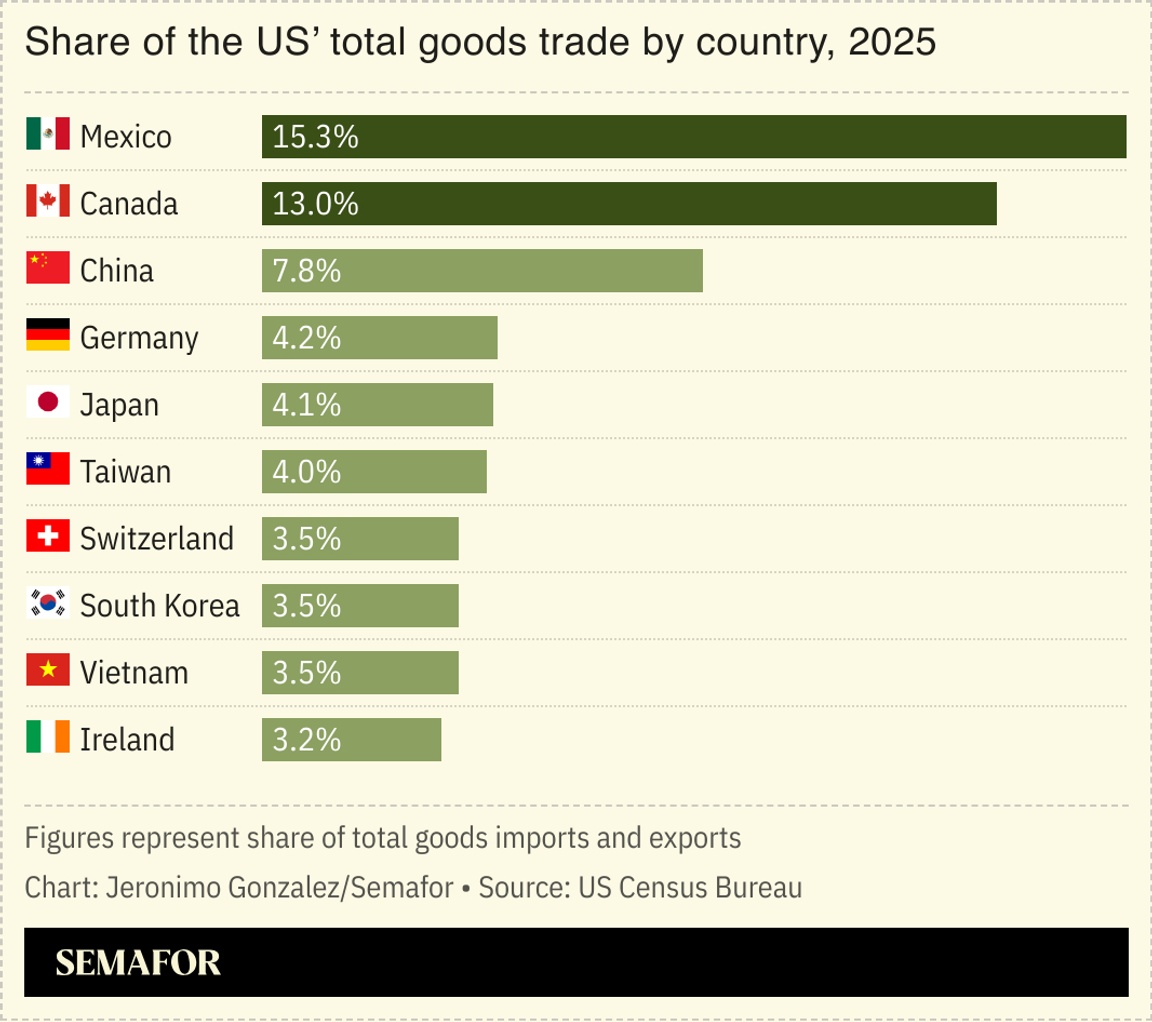 The US, Mexico, and Canada began consultations ahead of a high-stakes review of their $2-trillion trade agreement. Though the current framework was agreed during US President Donald Trump’s first term, many who negotiated that deal are no longer in the White House, raising fears that Trump’s brinksmanship may derail the review, experts noted. Underlining Trump’s seemingly inconsistent trade approach, some fear that further US tariff threats or a military strike on Mexican cartels — as Trump has floated — could damage bilateral relations. “Anyone who thinks the renegotiation process in 2026 is going to run smoothly and on schedule is in denial,” an expert wrote, predicting that it is just a matter of time before it goes “off the rails.” |
|
Allies test Trump’s foreign policy |
 Ken Cedeno/Reuters Ken Cedeno/ReutersCountries globally are showing signs of eschewing partnerships with Washington — or acting in clear defiance of the White House — suggesting that US President Donald Trump’s aggressive foreign policy approach is not paying off as he hoped. Trump “risks sidelining himself” as a result of his reluctance to pressure Russia and Israel over their military offensives, The Wall Street Journal warned, adding that the two countries were increasingly willing to oppose the White House openly. Elsewhere, Denmark recently opted for European air defense systems over American ones in its biggest ever single investment in security, while Australia and Japan have begun deepening military ties in the face of apparently flagging US support. |
|
Anthropic’s White House face-off |
 Anthropic CEO Dario Amodei. Yves Herman/Reuters Anthropic CEO Dario Amodei. Yves Herman/ReutersAnthropic’s refusal to allow its AI models to be used for law enforcement is reportedly putting the company on a collision course with the White House. Two officials told Semafor that the firm declined requests to let federal agencies use its tools for surveillance of US citizens, among other tasks. The row raises a new question for Silicon Valley’s post-sale control of its products, Tech Editor Reed Albergotti noted: Agencies using Excel, for example, don’t have to worry about whether it is “[keeping] track of weapons or pencils.” In Britain, facial recognition laws have led to more than 1,000 arrests in 18 months, The New York Times reported, leading to debate over how far to sacrifice liberty for security. |
|
 Jonathan Ernst/Reuters Jonathan Ernst/ReutersThe US Federal Reserve will likely cut interest rates today, in a sign that policymakers are growing more concerned over the weakening American labor market than they are about persistent inflation. Traders overwhelmingly expect a 25-basis-point reduction, though some predict a supersized half-percentage-point cut. The lack of suspense over rate cuts masks deeper questions over the direction of the US economy, as well as whether the Fed can maintain its prized independence in the face of near-constant pressure from the White House. President Donald Trump has installed one of his economic advisers to the central bank’s board, and is pushing to fire another governor as part of his move to cut rates sharply and bolster the economy. |
|
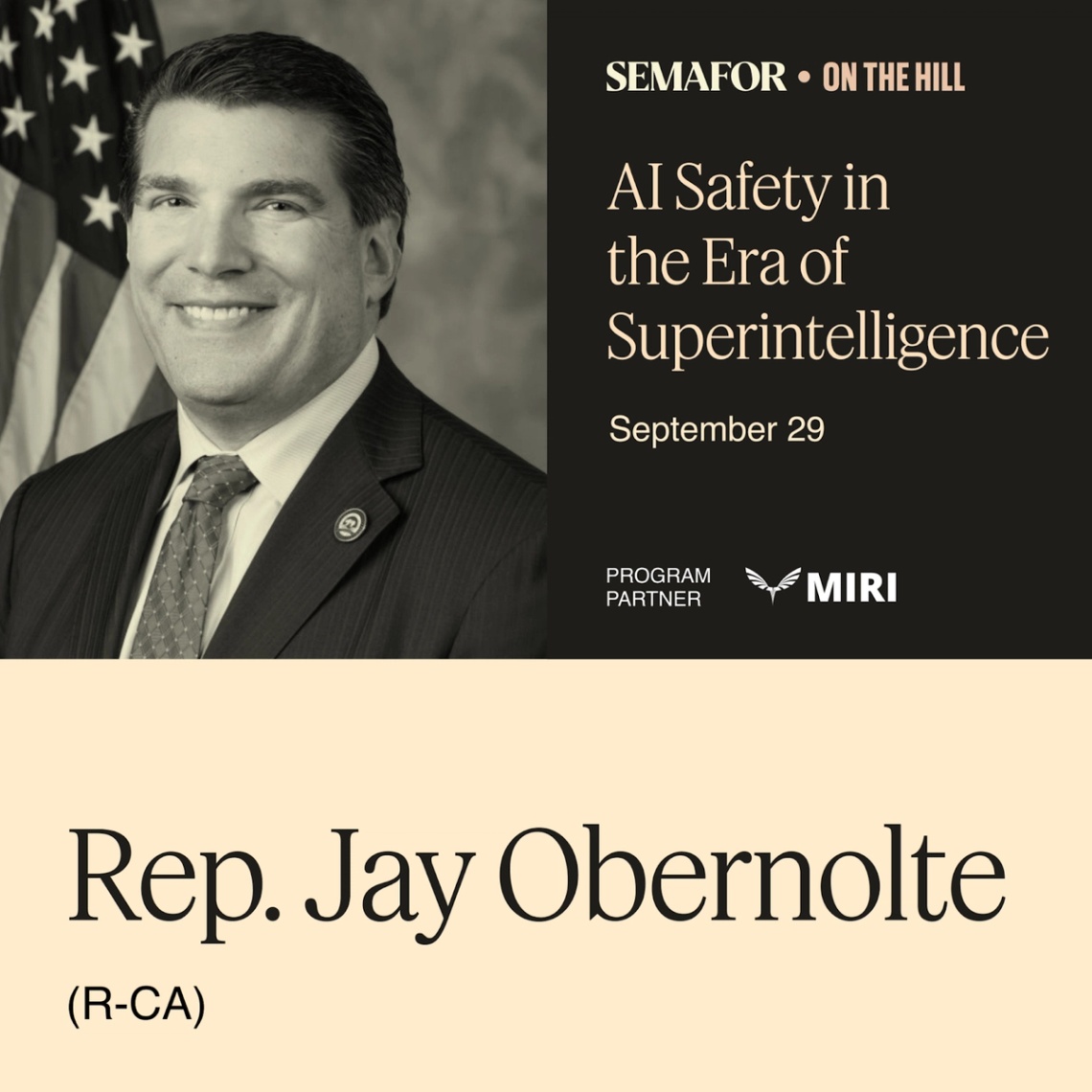 AI is set to transform the world, but who will control its direction? While the US debates AI regulation, the European Union and China are already implementing frameworks that could shape the global AI landscape for decades. With tech giants racing toward artificial superintelligence, one question dominates: What safeguards will keep humanity in control? Join Semafor on Monday, Sept. 29 in Washington, DC as our editors sit down with Rep. Jay Obernolte (R-Calif.) to discuss the most critical policy challenge of our time. Sept. 29, 2025 | Washington DC | Request Invitation |
|
Nigeria seeks energy independence |
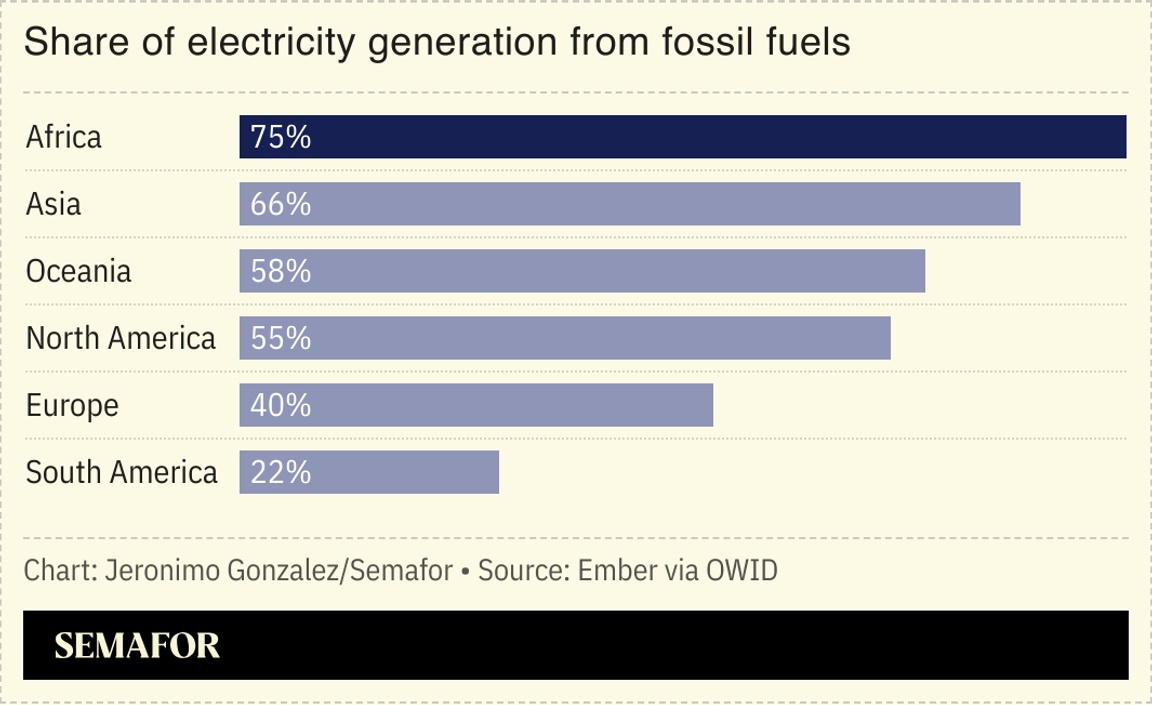 A $19-billion refinery in Nigeria sent its first shipment of gasoline to the US, marking a new chapter for the country as a major fuel exporter. Africa imports the vast majority of its refined fuels despite being a major oil producer, with leaders across the continent vowing in recent months to bolster their energy independence, including via renewable energy investments. The signature effort in this push is the Nigerian refinery project, built by Aliko Dangote, the continent’s wealthiest man. The Dangote Refinery could bring “greater energy independence to Africa’s largest oil-producing nation, and redefine trade flows across the Atlantic Basin,” Africanews wrote. |
|
Obesity drugs reduce ‘food noise’ |
 Tom Little/Reuters Tom Little/ReutersTwo new studies suggested that people taking GLP-1 anti-obesity drugs taste salt and sweet flavors more intensely, thus reducing cravings, and experience fewer intrusive food thoughts. “Food noise,” or obsessive thoughts about eating, affects 57% of overweight or obese people, making it harder to make healthy food choices. Recent research found that the proportion of patients experiencing such thoughts fell almost 75% after taking semaglutide. A separate paper showed that some patients reported tasting sweet and salty flavors more while using the drugs, and that those patients were more likely to become full quickly. The authors suggested that patients’ brains are being told that they have had enough calories and nutrients more quickly than before. |
|
|